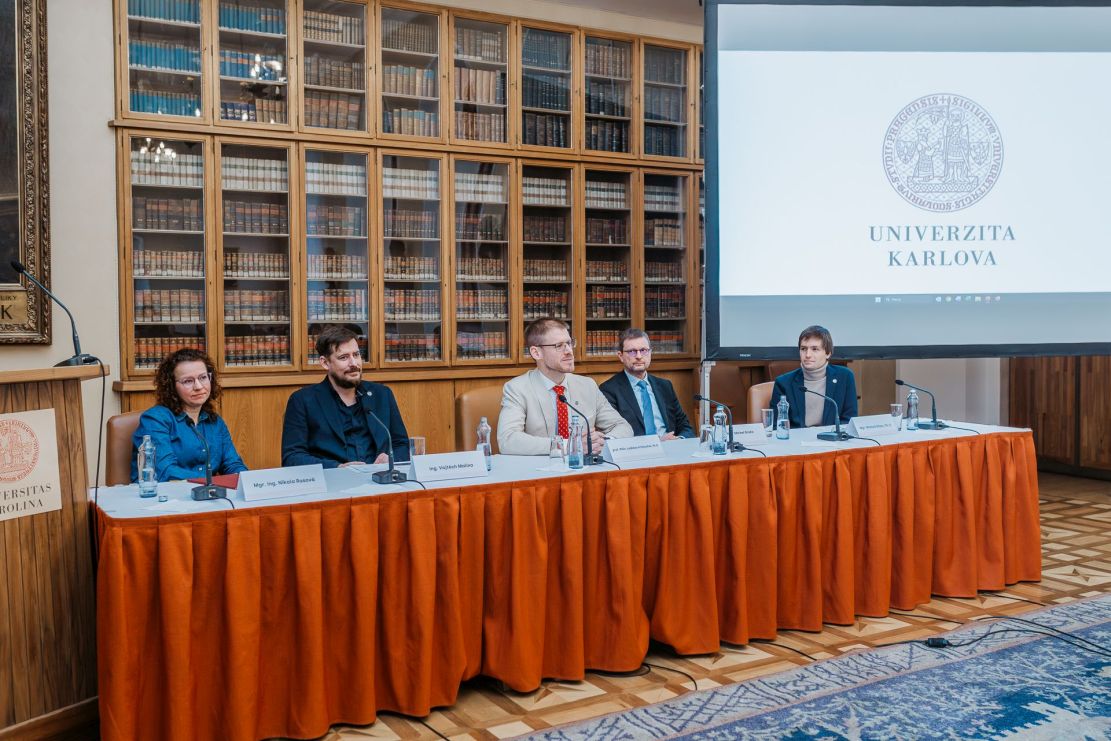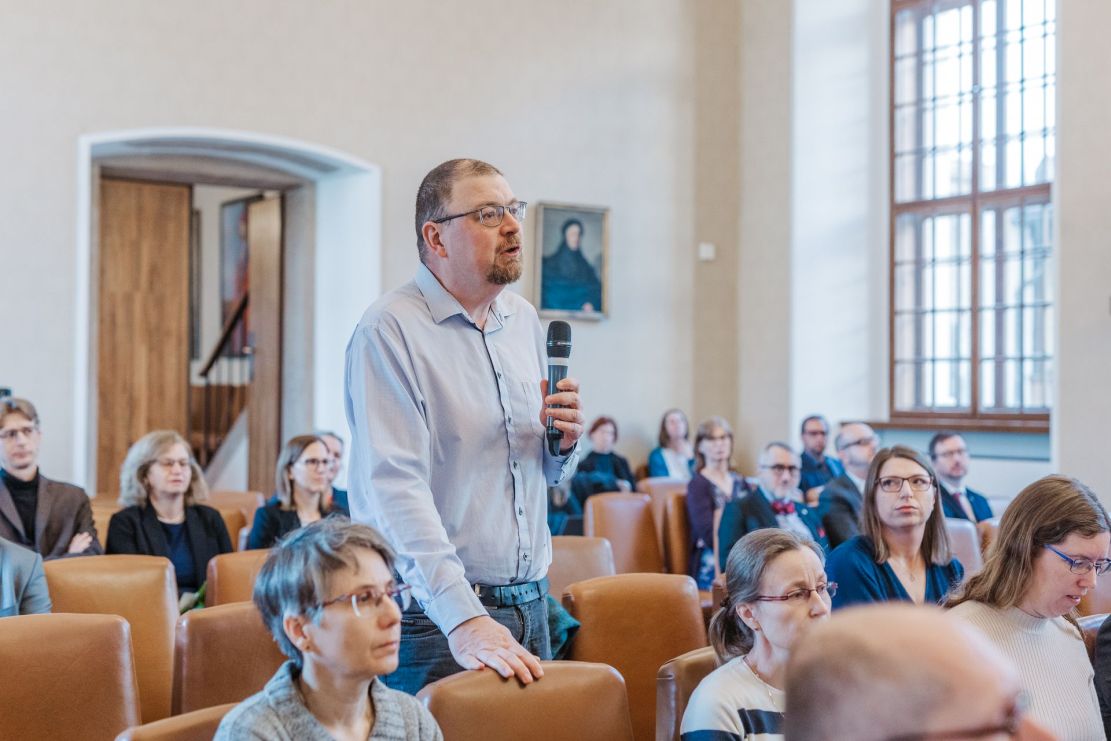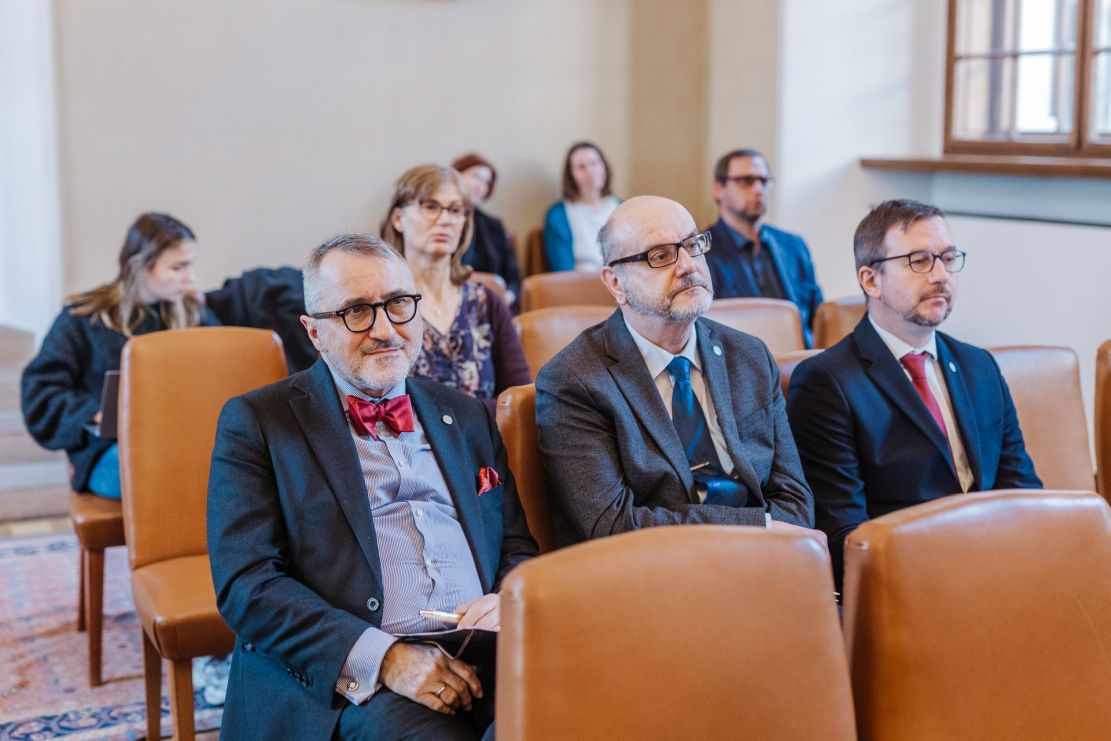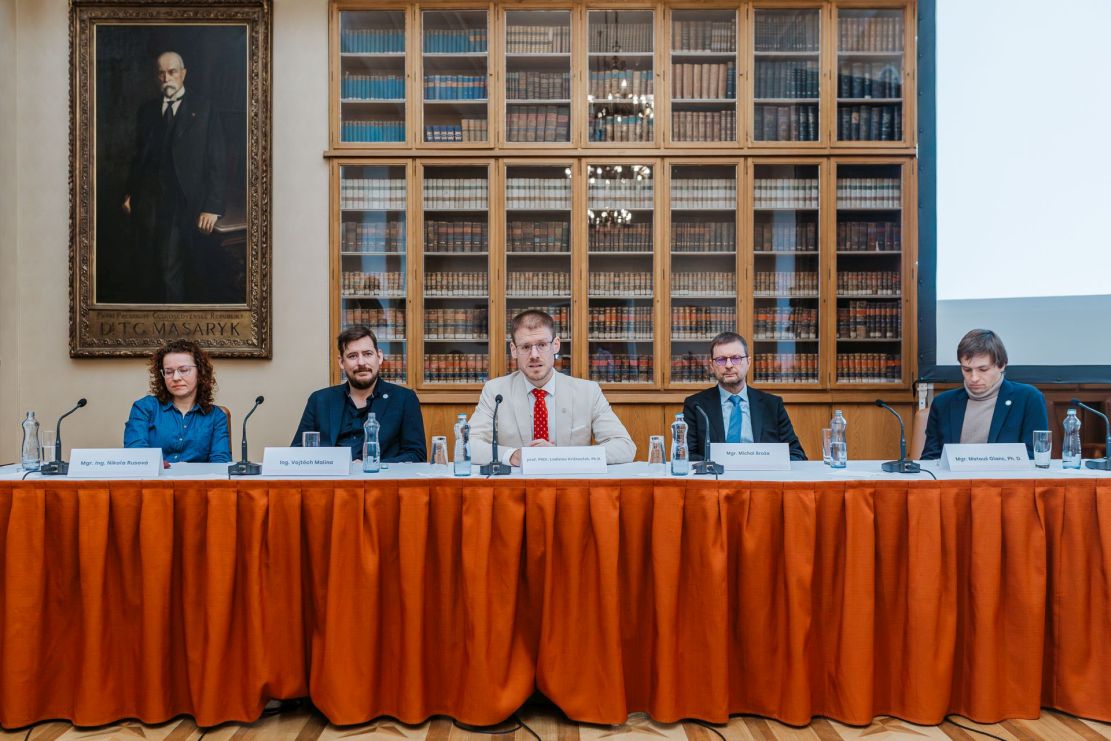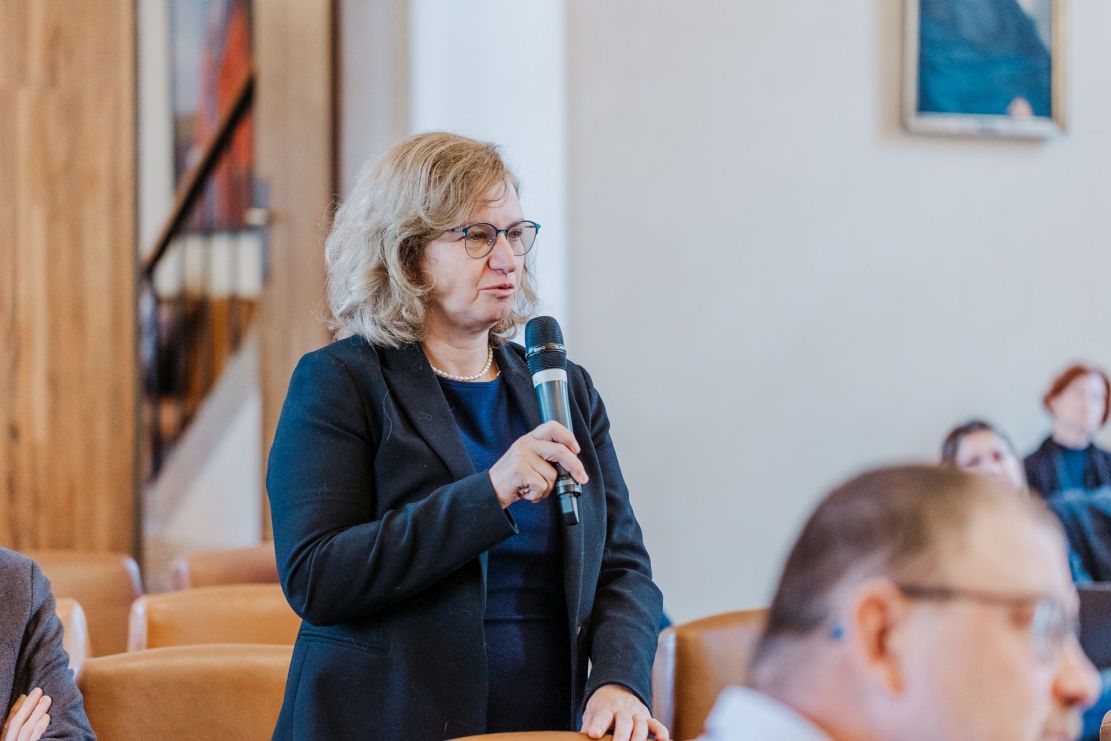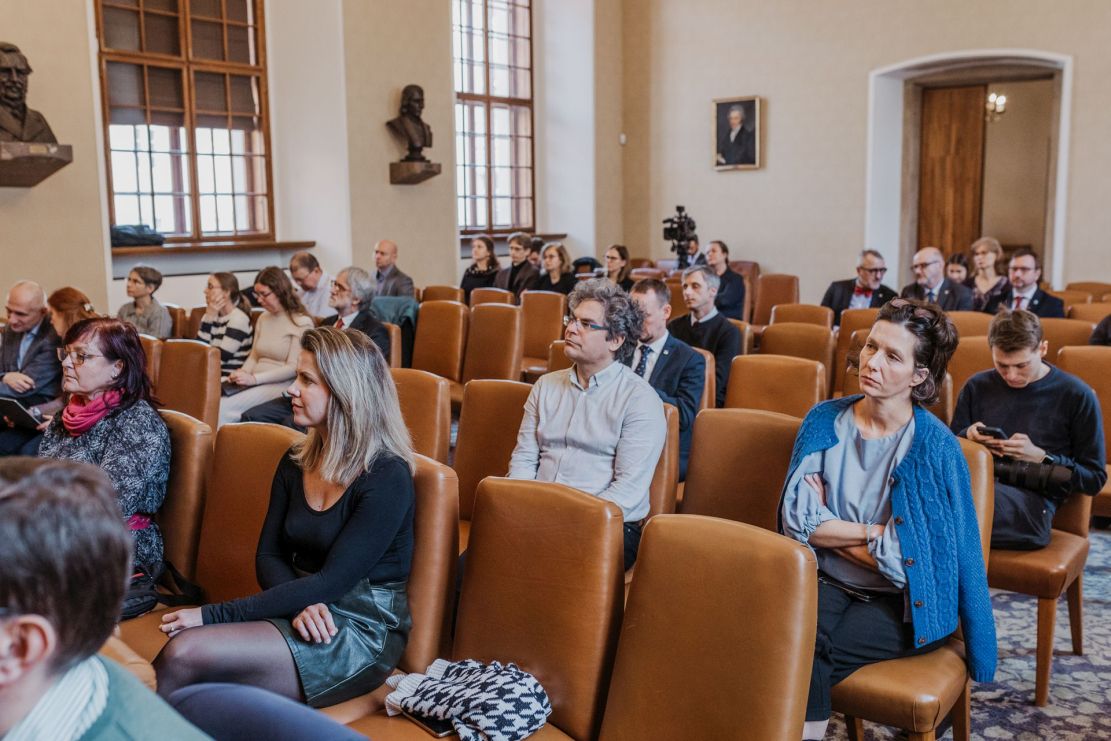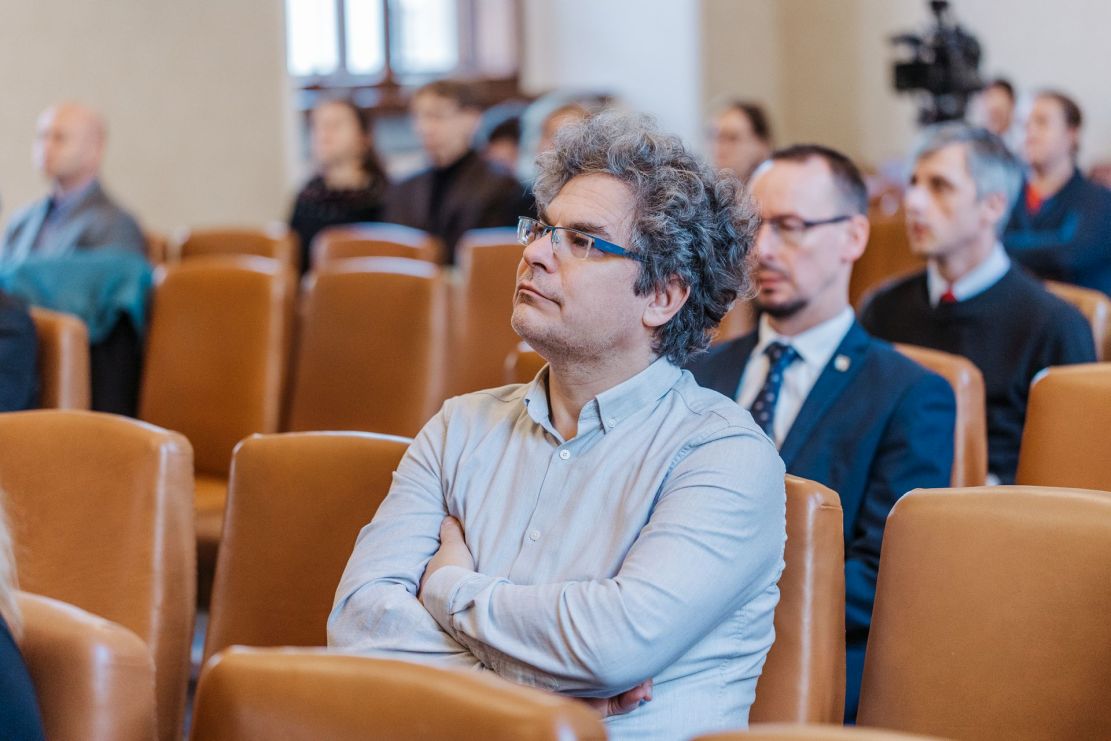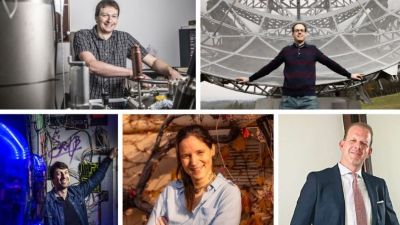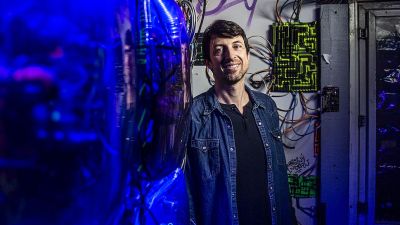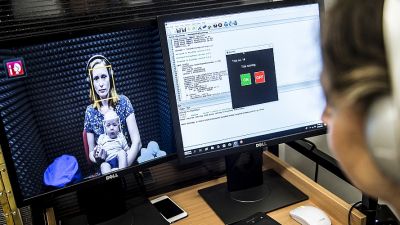Charles University is the only applicant from the Czech Republic to receive CZK 60 million for its Charleston project under the EU's flagship programme for doctoral and post-doctoral education. The aim to support young scientists who have already obtained their PhD and have previous international experience, whose research will focus on crucial sustainability issues.
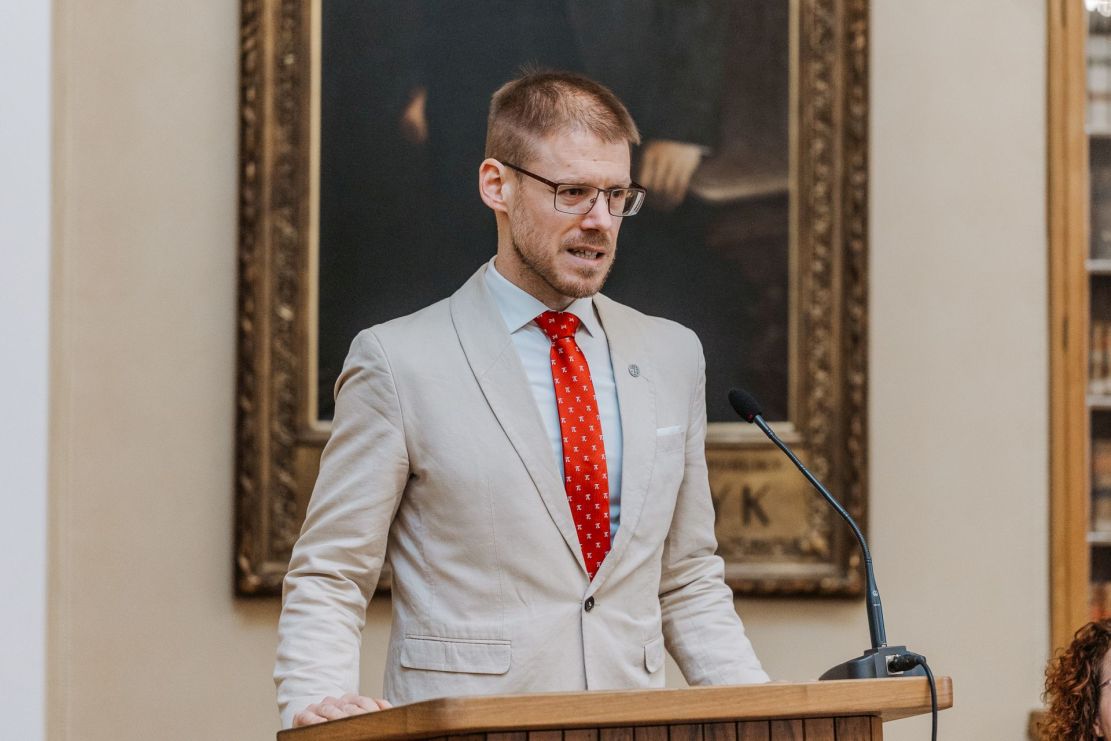
Vice-Rector for Research Ladislav Krištoufek spoke at length about the success and opportunities provided by CU's new Charleston programme.
On Monday, organisers at Charles University announced the much-awaited launch of Charleston, a project allowing applicants to apply for a total of 20 postdoctoral research fellowships. They are intended for young scientists who already have their PhD and have had research experience abroad. CU’s Vice-Rector for Research Ladislav Krištoufek outlined at the launch that more support for postdocs at CU was both needed and a key part of the mosaic for Charles University when it came to funding science research.
“This is a very important – I would say essential – project for Charles University. Even in a field of important projects, this one stands out, because this is one area... where support should be higher: in post-doctoral research. We have a fair amount of support at various levels and more senior researchers, but there has been a gap in backing younger scientists. We have been very active with programmes such as Primus. Charleston is another such cornerstone of our approach, backing young researchers but above all researchers from abroad. The postdoc community is both international and circulatory. There is no brain drain anymore as we all know, ‘brains’ are now circulatory or mobile, bringing know-how to various institutions.”
That experience from abroad, he emphasised, would only benefit the scientific ecosystem in Czechia as a whole.
The introduction of 20 new grants under the new Charleston label was not just ambitious but hard, says the main manager overseeing the project at CU, Eva Janů. The University was understandably thrilled to have met stringent requirements and to have succeeded in getting funding for the new initiative, she told Forum magazine.
“It is not that easy to succeed in the Marie Skłodowska-Curie COFUND – I think the success rate is only around 20 percent. Above all, applications from Czechia have not been that successful in the past: there were three institutions that succeeded, so it’s a pretty great result that we finished with so many points and the funding is very generous. It’s a major grant.”
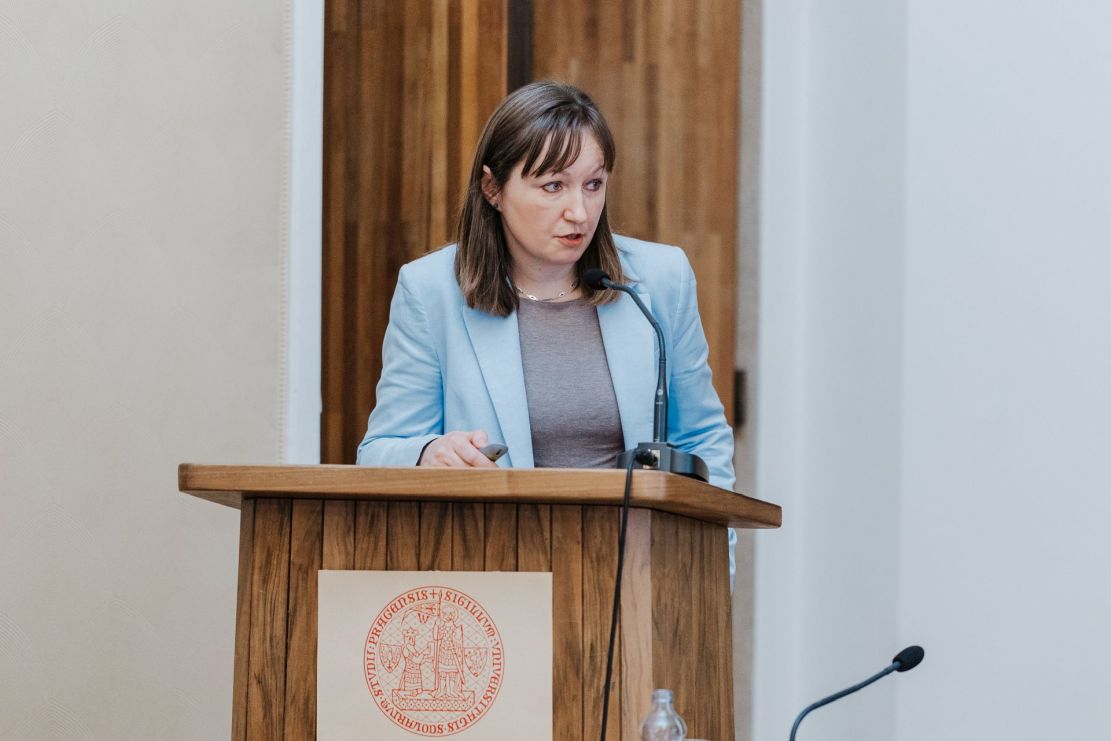
Eva Janů played a major role in preparing Charleston, which new offers twenty grants to be applied for over two years by postdocs.
CU has made the implementation of the Sustainable Development Goals a long-term priority, The Charleston project for young scientists is committed to focusing on sustainability and to contributing to the individual goals through its outputs designed in line with EU guidelines and requirements under Horizon Europe. This includes topics such as the environment, quality education, equal opportunities, health and quality of life and innovation. Nikola Rusová is the Sustainable Development Manager at CU, who also spoke at the launch on Monday.
“This project is not only about scientific progress but also about sustainability and I am proud that we are able to contribute. CU plays a major role in education and to help formulate strategies to confronting the global challenges that face us, from climate change to natural resource depletion to economic and social inequality. What does it mean to focus research on sustainability? It means looking for ways to achieve a balance between the environment, economic growth, and social justice. That means understanding complex processes and how they interact, in the hopes of finding harmony - without lessening the quality of life of future generations.”
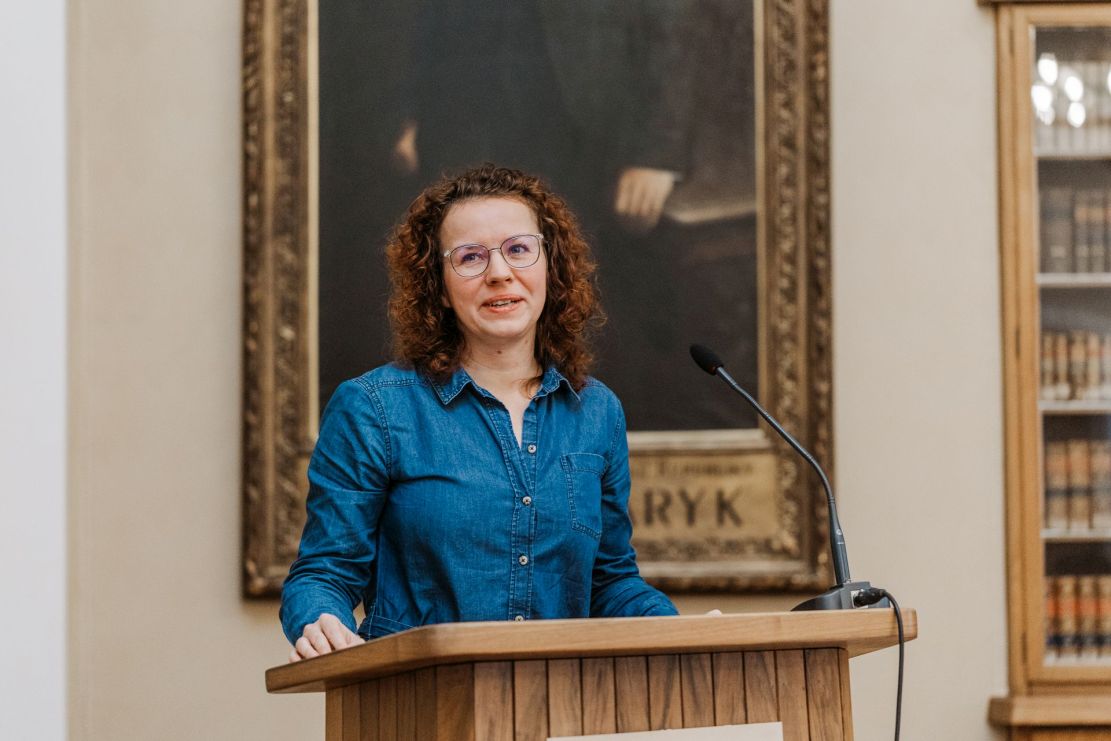
Sustainable Development Manager at CU, Nikola Rusová.
The emphasis on sustainability was welcomed by Michal Broža, in charge of one of the partners the United Nations Information Centre (UNIC) in Prague.
“Allow me to congratulate CU on getting the funding for this project. I am very happy it worked out, not least because we are a partner institution, and we have our plan for how to promote or inform project participants about SDGs that could be tackled in research. That is something that I am looking forward to.”
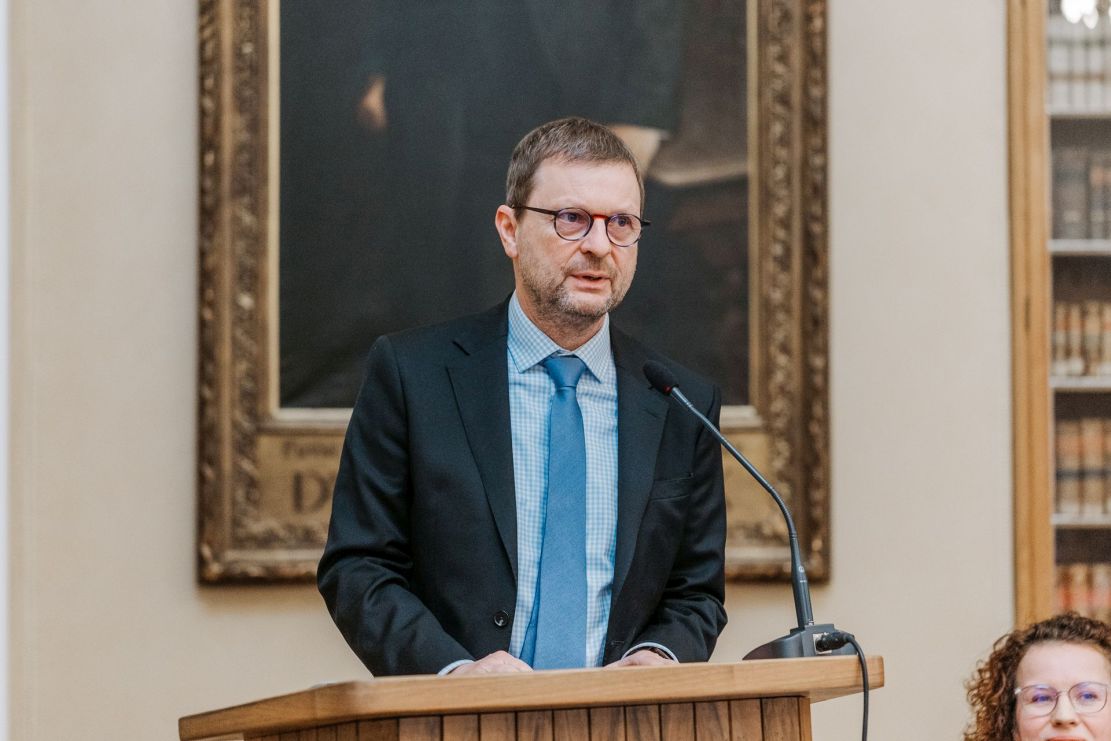
Michal Broža - head of the United Nations Information Centre in Prague.
In all, some 17 institutions (likely not a final number) are involved: one of the requirements for individual researchers is a six-month paid internship in non-academic institutions to ensure the research and know-how are used in real-life applications or situations. Charleston will also tie in and provide additional opportunities, Vice-Rector Ladislav Krištoufek explained:
“In addition to the postdoctoral fellowships themselves, the Charleston programme will highlight career development tools designed for all young researchers at CU, such as training courses or mentoring. Any assistant professor who is interested in working on his or her career development can therefore benefit.”
CU's long-term strategy is to transfer technology and scientific outputs into practice outside academia. The university works with a number of companies in a diverse range of industries such as pharmaceuticals, engineering, electrical engineering and others. Internships of postdoctoral fellows in private companies or government institutions are a mandatory part of the Charleston project, something also discussed by Vojtěch Malina, the acting head of the Centre for Knowledge and Technology Transfer (CPPT).
“I would also like to congratulate Charles University on its success in creating this programme, also because it closely follows similar activities in which CTTP is involved. We are most interested in the applicability of some of the findings in these research projects and would like to help students with mentoring and preparation of projects and we have interdisciplinary know-how we can offer and can bring together partners across different sectors. The list of those we cooperate with is continuing to grow. At the same time, postdocs themselves will choose the institution they want to do an internship with.”
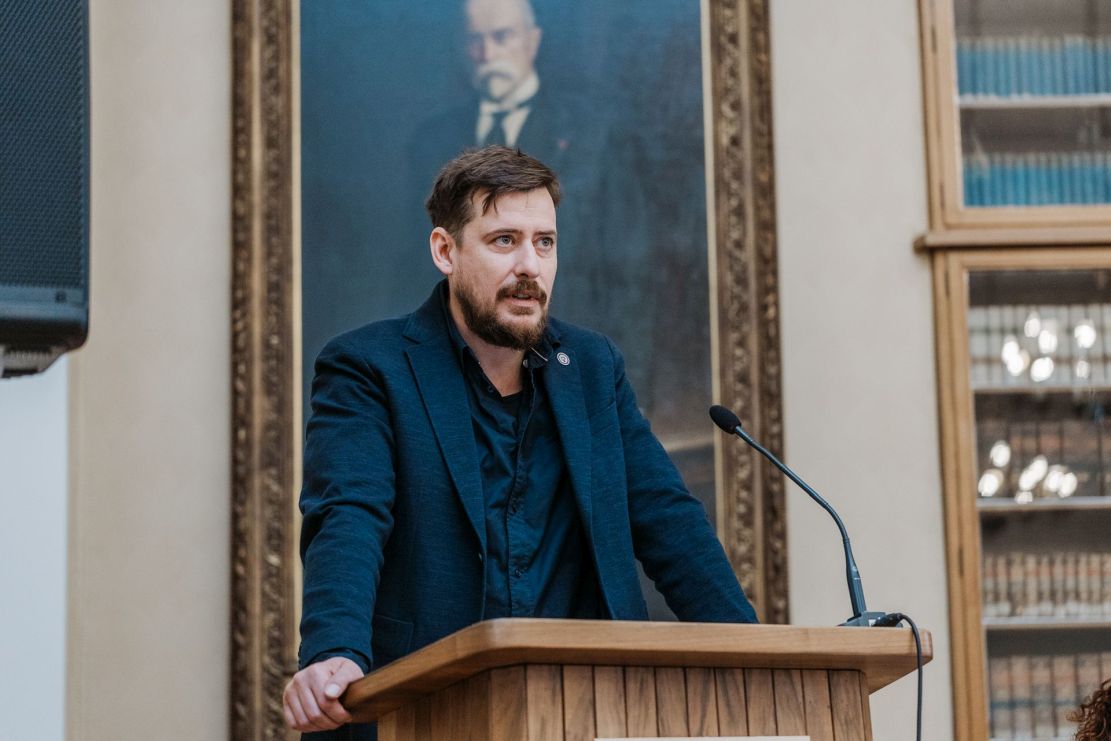
Vojtěch Malina, the acting head of the Centre for Knowledge and Technology Transfer (CPPT).
Another organisation that has already signed on is Czexpats in Science, headed by Matouš Glanc. He was equally enthusiastic about the project and told Forum why:
“Getting researchers from abroad who have fresh ideas is positive, absolutely. That’s one aspect. Another is that Marie Skłodowska-Curie COFUND backed programmes are quite a bit more common at other European universities, where they already have great programmes for postdocs, but in Czechia this is not nearly as common, so that is [an important signal that this is changing]. That’s another reason this is great news…
What I particularly like about projects like this, is that the impact will not be limited only to the 20 people whose research get backing. The University sees Charleston as a spark which will have an impact beyond the project itself, such as in mentoring or other training. CU is committed to all such training, for example of soft skills and so on, and while it was a part of the Charleston proposal, CU would be committed to this even had the project not gone ahead. All of which is positive.”
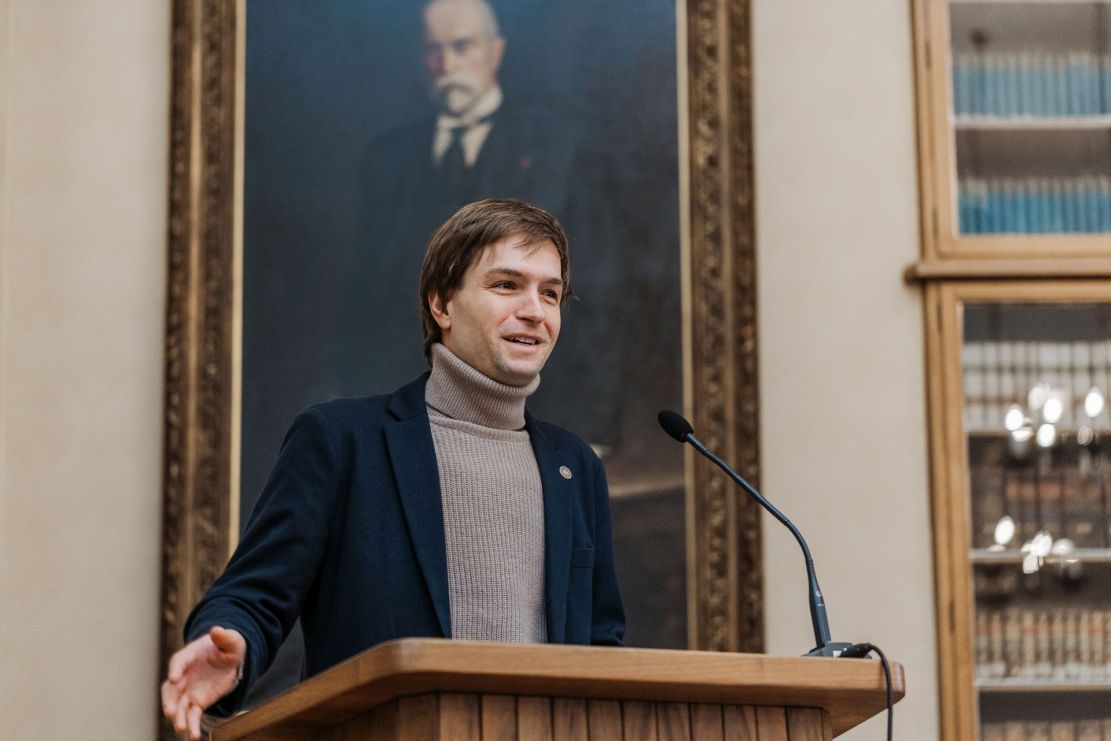
Czexpats in Science director Matouš Glanc.
The total budget of the Charleston project is CZK 120 million (4.776 million euros). Half of which is a contribution from the European Commission, which announced the results of the Marie Skłodowska-Curie Actions (MSCA) call for co-financing regional, national and international programmes (COFUND), under the EU's flagship research and innovation funding programme Horizon Europe.
The first call for applications for postdoctoral funding at CU will open in early March.
| Who is a postdoctoral fellow at Charles University? |
| Postdoctoral fellows are academic or research staff who have a fixed-term (usually 1-3 years) employment relationship with the University and who have attained the academic degree of PhD or equivalent no more than eight years prior. |
You can follow this link for the press release in Czech and English.


